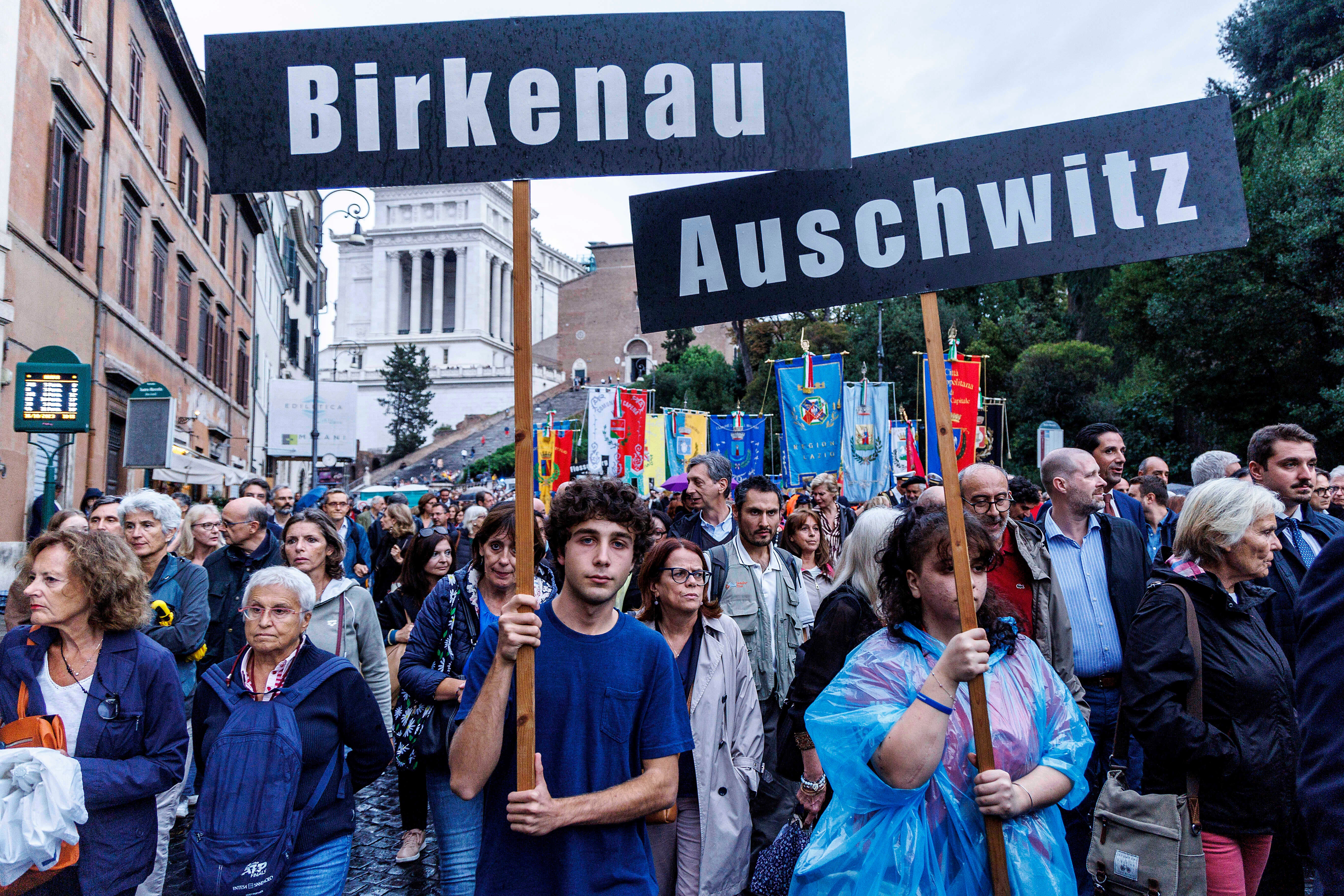Italian lawmakers debate long-delayed Holocaust Museum revived by far-right-led government
Italian lawmakers have marked the 80th anniversary of the Nazi roundup of more than 1,200 Roman Jews in the Holocaust with a debate on a measure to partially fund a long-delayed Holocaust Museum in the capital

Italian lawmakers on Monday marked the 80th anniversary of the Nazi roundup of more than 1,200 Roman Jews in the Holocaust with a debate on a measure to partially fund a long-delayed Holocaust Museum in the capital.
The Shoah Museum project was launched in 2007, but has foundered over funding, a location and even reluctance to highlight the role of Italy’s fascist government as a perpetrator in the Holocaust.
The project was revived this year by far-right leader Giorgia Meloni and her culture minister, Gennaro Sangiuliano, both of the far-right Brothers of Italy party with neo-fascist roots. Italy's lower house will vote later this week on a measure that includes 10 million euros ($10.5 million) in funding for the museum over the next three years, following Senate approval this summer.
The president of the Shoah Museum Foundation that is heading the project, Mario Venezia, told The Associated Press that the Italian role in the Holocaust must be central to the museum. He expressed gratitude to the government for giving it new impetus.
“I had important meetings with the Holocaust Museum in Washington and Yad Vashem, and they were both underlining the fact that fascism was born here,’’ he said. “We are in the place where the story was born.”
“Italy was not conquered by the Nazis. Italy was side by side with the Nazis, and many political ideas of the fascists were adopted by the Nazis,’’ Venezia said. He said the museum must also look at the role of the Vatican, which is under increasing scrutiny with new revelations of the extent of World War II-era Pope Pius XXII's knowledge of the Holocaust.
Venezia said it was an important sign that Meloni’s government confirmed the foundation as central to the museum project, without creating a new one. He believes that the project's delays in recent years have been mostly for bureaucratic, not ideological, reasons.
Still, during the first day of debate in the lower house, only one speaker mentioned the role of Italian dictator Benito Mussolini’s fascist government in laying the groundwork for the roundup of Roman Jews on Oct. 16, 1943, and deportations from other cities.
Democratic Party lawmaker Paolo Ciani told the chamber that many fellow Italians failed to speak up against the deportations because of fear of the dictatorship, or because they underestimated the significance of events.
“For Roman Jews, it was the last step, an unexpected step, on a sad itinerary started in September ’38 with the promulgation of the racial laws,’’ he said. “There is a deep connection between these two dates for many Roman Jews. The racial laws represented an antechamber to the Nazi extermination.”
Meloni has frequently decried the fascist government’s racist laws, and on Monday in a meeting with the head of Rome's Jewish community underlined the “fascist complicity” in the Nazi roundup of Roman Jews eight decades ago. She further cited the “terrible attack by Hamas” targeting Israeli civilians as evidence of enduring “antisemitic hatred."
SS troops rounded up more than 1,200 Jews in Rome exactly 80 years ago on Monday. Of the 1,024 Roman Jews eventually deported, only 16 survived the Holocaust. Most were murdered in the gas chambers upon their arrival at the Auschwitz-Birkenau extermination camps.
Former Rome Mayor Walter Veltroni, who helped initiate the project backed by the city, the Lazio region and the Jewish community, quit the foundation in 2008, citing attempts by his far-right successor to obscure the role of fascism role in the Holocaust.
In announcing his resignation, Veltroni cited “the attempt to express a ‘double' judgment on fascism, this ambiguity not clarified, if anything aggravated, but subsequent statements that wound me, and make it impossible to stay in my place on a committee run by Rome Mayor (Gianni) Alemanno.”
Venezia, who has headed the Shoah Museum Foundation for eight years, said the new government funding will be used to set up the eventual exhibits, not for the site, which is still being finalized by the city.
U.S. historian David Kerzer said Italy has shown a reluctance to examine its fascist past, including the racial laws and the alliance with Nazi Germany, focusing instead on the role of the resistance, which later helped expel the Nazis during the Allied advance after Mussolini’s demise.
He emphasized that any Holocaust museum in Rome should examine not just the role of the fascist government, but of ordinary Italians.
“The SS involved in the roundup didn’t know Italian. They couldn’t tell who was a Jew from anyone else. It was Italians who often cashed in on the fact there were cash offers if you turned in a Jew who was hiding," said Kerzer, a Pulitzer Prize-winning historian whose most recent book examines the Vatican’s behavior during the Holocaust.
After the racial laws of 1938, “for five years, the Italian government, with little protest from Italians, persecuted Jews in severe ways,’’ he said, excluding them from the workplace and schools. “Today there are a lot of attempts to downplay that severity.”